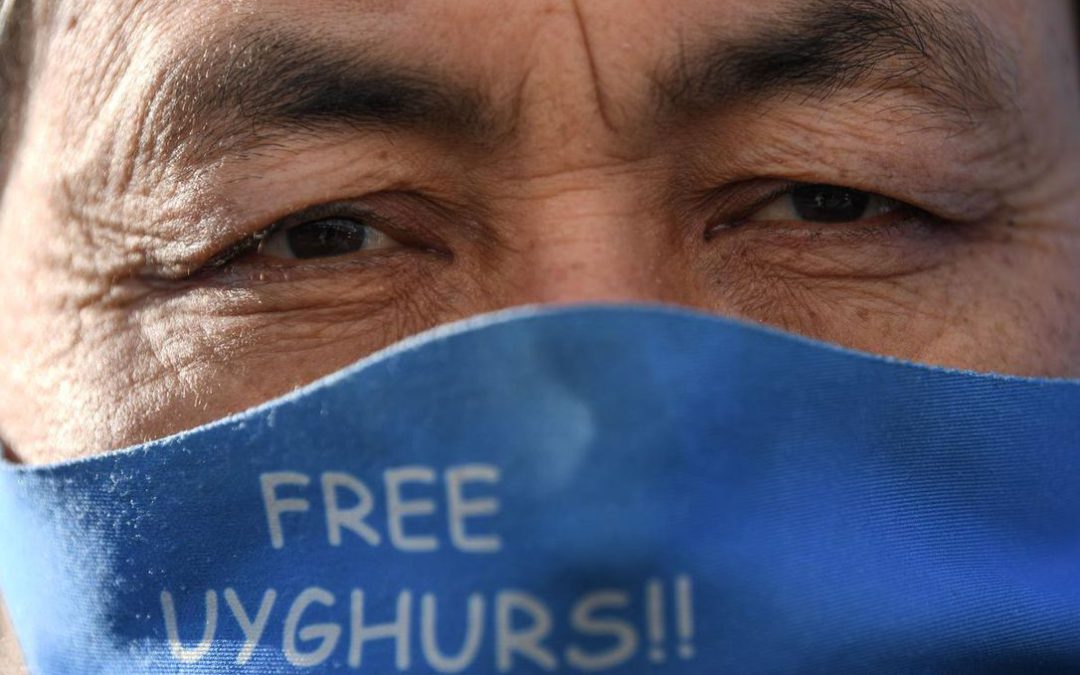A new report tabled in Parliament Friday sounds the alarm about human rights in China’s Xinjiang Uyghur autonomous region and urges Ottawa to declare a genocide in the region.
The report, tabled by the Standing Committee on Foreign Affairs and International Development, recommends Global Affairs Canada co-ordinate an international effort to pressure China to allow independent observers unfettered access into Xinjiang to assess the situation, among other initiatives.
“For life-saving changes to occur, someone will have to take the lead,” it reads.
The report comes out of testimony given to the foreign affairs subcommittee on international human rights last summer. In October the subcommittee issued a statement of its findings saying a genocide was taking place in Xinjiang.
Friday’s report offers more detail on the reasoning behind the subcommittee’s statement and lays out what steps Canada should take next.
The multi-party Foreign Affairs Committee adopted it unanimously.
The international spotlight has been cast on the Xinjiang region, a large portion of mainland China in the country’s far west, where at least 1 million Uyghur and other Turkic peoples have been placed in what the report characterizes as “concentration camps.” Beijing insists the camps are vocational training centres.
But stories from inside the camps about systemic rape, torture, political indoctrination and concerns about forced labour related to them have emerged. Further evidence of forced birth control and sterilization in the region have also made their way into international headlines.
In Ottawa on Feb. 22, the House of Commons passed a motion introduced by the Conservatives to recognize the actions of the Chinese Communist Party in Xinjiang as a genocide. China’s officials have denied allegations of genocide.
The report makes 15 recommendations, including the use of so-called Magnitsky sanctions against Xinjiang and CCP officials, tracking harassment of Uyghur people in Canada and creating a refugee stream to help Uyghurs and other Turkic Muslims under threat get to Canada quickly.
“This report is a tool for pushing the government to follow the steps that are laid out in it that will really hold the government of China accountable for their actions in accord with our international legal obligations,” said Conservative MP Garnett Genuis, member of the Foreign Affairs Committee who was on the subcommittee when the study was done.
Part of the recommendations take aim at products made from forced labour in the country. In January, a Toronto Star and Guelph Mercury Tribune investigation detailed how products made from companies accused of using Uyghur forced labour made their way to Canada.
A followup story Tuesday detailed how, despite bringing in new regulations last summer to curb the importation of such products, not a single shipment has been seized by customs officials over suspicion of forced labour.
Federal officials say they are proactively analyzing the situation in Xinjiang and researching supply chains.
Meanwhile the report recommends Global Affairs Canada, “enhance its import control mechanisms to ensure products made with forced labour are not entering the Canadian market” including strong punishments for those benefitting from the use of forced labour.
Genuis said Canada’s Parliament overall has been active on the file, pointing to the genocide motion, the creation of the Special Committee on Canada-China Relations against the wishes of government and other efforts from elected members, but criticized the Liberal government for not doing enough itself.
He said Canada could be doing more to hold Beijing to account.
“I think it is possible for Canada to be playing a leadership role on these issues,” Genuis said. “But for that to be fully realized, the government has to get with the program in terms of what parliamentarians and opposition parties are working together to do and stop either standing in the way or sitting on their hands.”’
He stressed another important part of the report is working for the release of Huseyin Celil, a Uyghur-Canadian human rights activist arrested in Uzbekistan then sent to China in 2006, where he was accused of being a terrorist and given a life sentence.
The government now has an opportunity to respond to the report.
Testimony for much of the report was given to the subcommittee in July last year.
One of the subcommittee’s 23 witnesses, Gulbahar Jelilova, is a Kazakhstan citizen who had been doing business in China for 20 years. Jelilova testified on a trip to Xinjiang’s largest city, Urumqi, she was arrested at her hotel.
From there Jelilova said she was interrogated and placed in an internment camp where she saw sexual abuse, torture and other inhumane treatment of Uyghur and Turkic women by Chinese authorities.
“I witnessed some girls taken away for 24 hours. They had been tortured. They’d had needles put under their nails,” she told the committee. “They’d had needles put in their cheeks. Some girls would disappear and we would never see them again.”
Jeremy Nuttall is a Vancouver-based investigative reporter for the Star. Follow him on Twitter: @Nuttallreports
Original Link: https://www.thestar.com/news/canada/2021/03/12/mps-sound-alarm-over-human-rights-in-chinas-xinjiang-uyghur-autonomous-region.html


Recent Comments